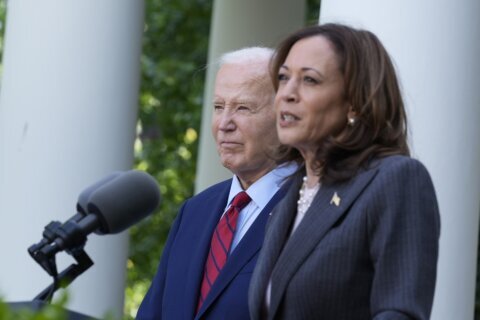Investment banking can be a lucrative and rewarding career for those able to secure a job at a multinational like Goldman Sachs or J.P. Morgan. But to even get a foot in the door, an MBA from a top business school is a virtual necessity, experts say.
“Banks expect a certain level of academic training, technical proficiency and, for lack of a better word, ‘polish’ provided by top MBA programs,” Drew Pascarella, senior lecturer of finance at Cornell University’s Johnson Graduate School of Management in New York, wrote in an email.
While attending a top ranked MBA program won’t guarantee a job offer after graduation, it is the first step in making a dream a reality for most aspiring investment bankers.
The Path to Investment Banking
Investment banker can be a broad term, but in general it refers to professionals who work for investment banks advising corporate clients on mergers, acquisitions and raising capital.
Although experts say there are always a few exceptions to the rule, most future investment bankers have only two paths into the field. The first is by joining a bank right out of undergrad as an analyst. The other is joining as an associate after graduating from an MBA program.
“There’s not really another path unless you’re promoted as an undergrad,” says Sunshine Singer, a career adviser for investment banking at The Wharton School at University of Pennsylvania. “Besides that, there’s not really a path besides the MBA.”
While the degree gives students the skills to become investment bankers, top business schools also provide networking and recruitment opportunities that are hard for non-MBA candidates to find on their own. That’s because most prominent investment banks have well-established recruitment relationships with business schools and rarely hire associates through other avenues, experts say.
[READ: 3 Factors to Help Find the MBA Program That’s Right for You.]
Investment banks also rarely hire professionals from other fields. They tend to follow a rigid hiring schedule based on graduation cycles, so there are few opportunities for on-demand hiring. It’s also rare for early- or mid-career applicants to transition into investment banking.
“A non-investment banker lateraling into the industry from the outside will generally have a particularly difficult time performing at a level expected of a banker, given their lack of ‘time-in-seat’ experience,” Pascarella says.
Pascarella notes one exception: candidates who hold a law degree and have worked on the same type of corporate deals in their legal career, and therefore have a solid background in business fundamentals.
The MBA and Investment Banking
An MBA offers students a wealth of resources as they prepare for a career as an investment banker.
Aside from the courses that will train them in the skills needed to perform their job, perhaps the most important path into the investment banking world will be a student’s summer internship between the first and second year of the MBA program, experts say.
“That summer internship is the biggest feeder to a full-time job,” Singer says. “Most banks look to fill their incoming class with interns.”
In addition to completing an internship, students also have the option of joining their school’s investment banking club. These clubs offer students extensive networking opportunities, events with professional bankers and interview prep for when they enter the job market.
Despite all these advantages, even candidates with an MBA will find it difficult to land an investment banking job if they haven’t attended a top business school.
“Associate-level hiring is extremely network-driven,” Singer says. “MBA programs have dinners, they have ‘lunch-and-learns,’ they do a lot more networking, so I think it’s more difficult if you’re not at a top-30 program.”
[READ: MBA Promotion: How a B-School Degree Can Help You Advance.]
Columbia in New York NYU Stern, Chicago Booth in Illinois, Wharton and Cornell frequently led business schools for graduates obtaining investment banking jobs, according to 2020 data from MBA admissions consulting firm Menlo Coaching. Those schools rank in the top tier of all business schools, U.S. News data shows.
For students who attend lower-ranked MBA programs, experts recommend splitting their time between networking to find a position with a top bank and applying to regional or middle-market banks.
The Best MBA Courses for Investment Bankers
To prepare for the technical aspects of investment banking, MBA students should focus on courses centered on the “big skills” needed for the job, including accounting, corporate finance and corporate valuation, experts recommend.
While these are essential entry-level skills, David White, founding partner at Menlo Coaching, advises aspiring investment bankers to add MBA courses targeting the leadership, management and communications skills they’ll need later in their careers.
“As bankers become more senior,” Pascarella says, “they need to be able to market themselves and their firm effectively in a highly competitive market with a sophisticated client base; to build valuable relationships with clients; to turn massive amounts of data and analysis into actionable and credible advice; and to lead large teams of people through the most complex deals a company will ever do.”
For MBA students aiming to work at a firm focused on a single sector, White recommends tailoring coursework to those particular areas of banking.
“For example, a restructuring banker may find it useful to take cross-listed courses from their university’s law school about legal procedure to better understand what is likely to happen during a bankruptcy process, or an energy banker may want to take courses about the economics of renewable energy,” White wrote in an email.
[How Women Can Thrive in Business School]
Job Outlook and Earnings for an Investment Banker
While it’s difficult to break into investment banking, successful job seekers will enter a fast-growing sector with high earning potential.
The U.S. Bureau of Labor Statistics projects 7% growth from 2022 to 2032 for securities, commodities and financial services sales agents — a sector that includes investment bankers.
According to Payscale, the average investment banker salary is a little over $116,000, but that number doesn’t include year-end bonuses — as high as $90,000 to $130,000 for top performers. High earnings typically come high pressure and demanding working conditions, and according to a report from Goldman Sachs, first-year analysts work on average close to 100 hours a week.
Fluctuations in the global economy are affecting investment banks. However, while hiring in fields like consulting and tech was down, competition for investment banking jobs was highly competitive this past year, Singer says.
“It’s one of the best training grounds for finance you can get,” Singer says. “Whether they want to stay in banking or move on, students know they are going to gain strong finance skills in that role. It’s also great training and lots of exposure to different types of deals and companies.”
More from U.S. News
Business Schools With the Highest Rates of Racial Minorities
How, Why to Apply for J.D.-MBA Programs
How to Get Accepted to Multiple Top Business Schools
Will an MBA Help You Become an Investment Banker? originally appeared on usnews.com
Clarification 06/05/24: This story has been updated to clarify a source’s comment about hiring in fields like technology and consulting and to clarify when students are eligible for membership in the finance club at The Wharton School.







